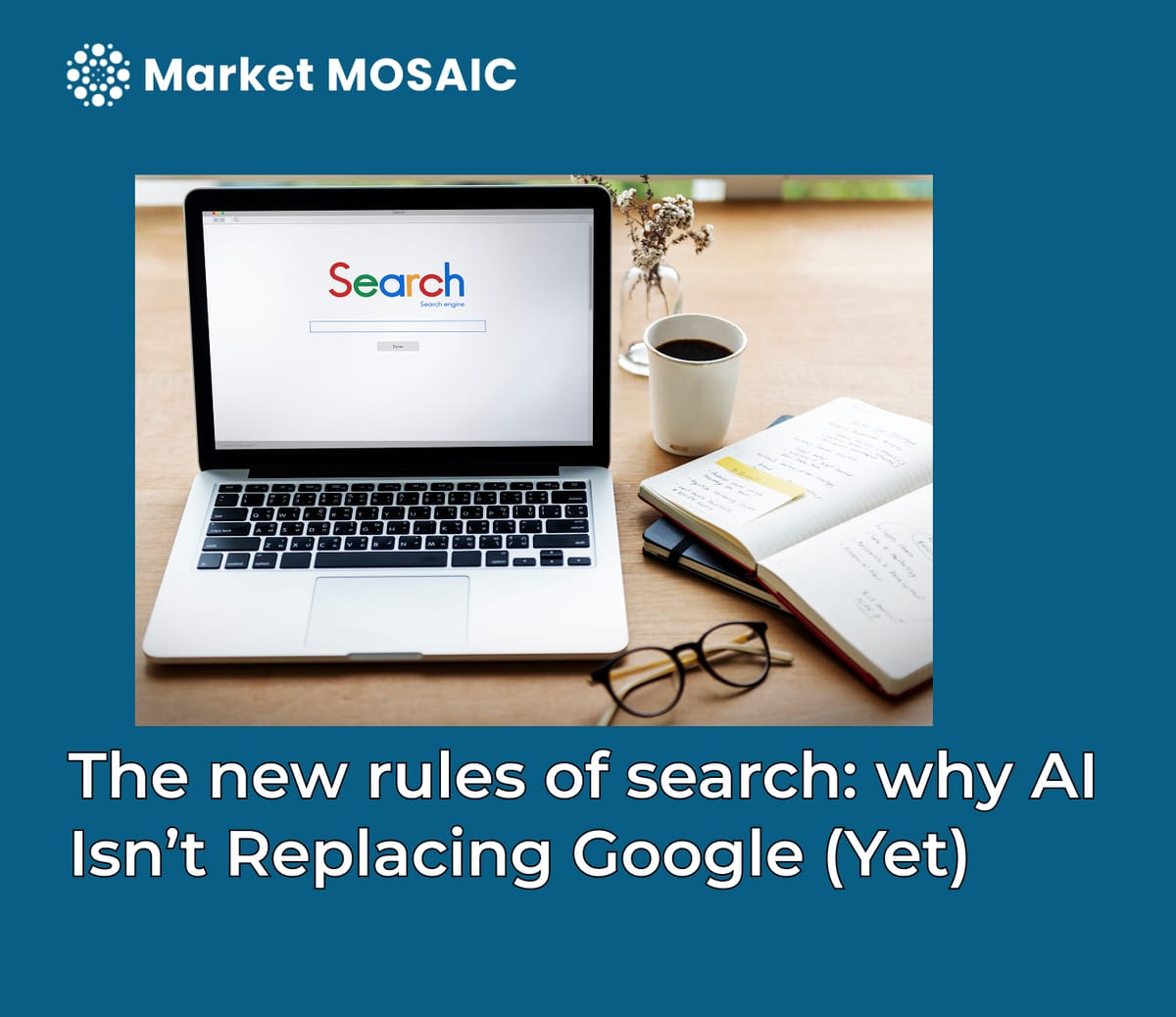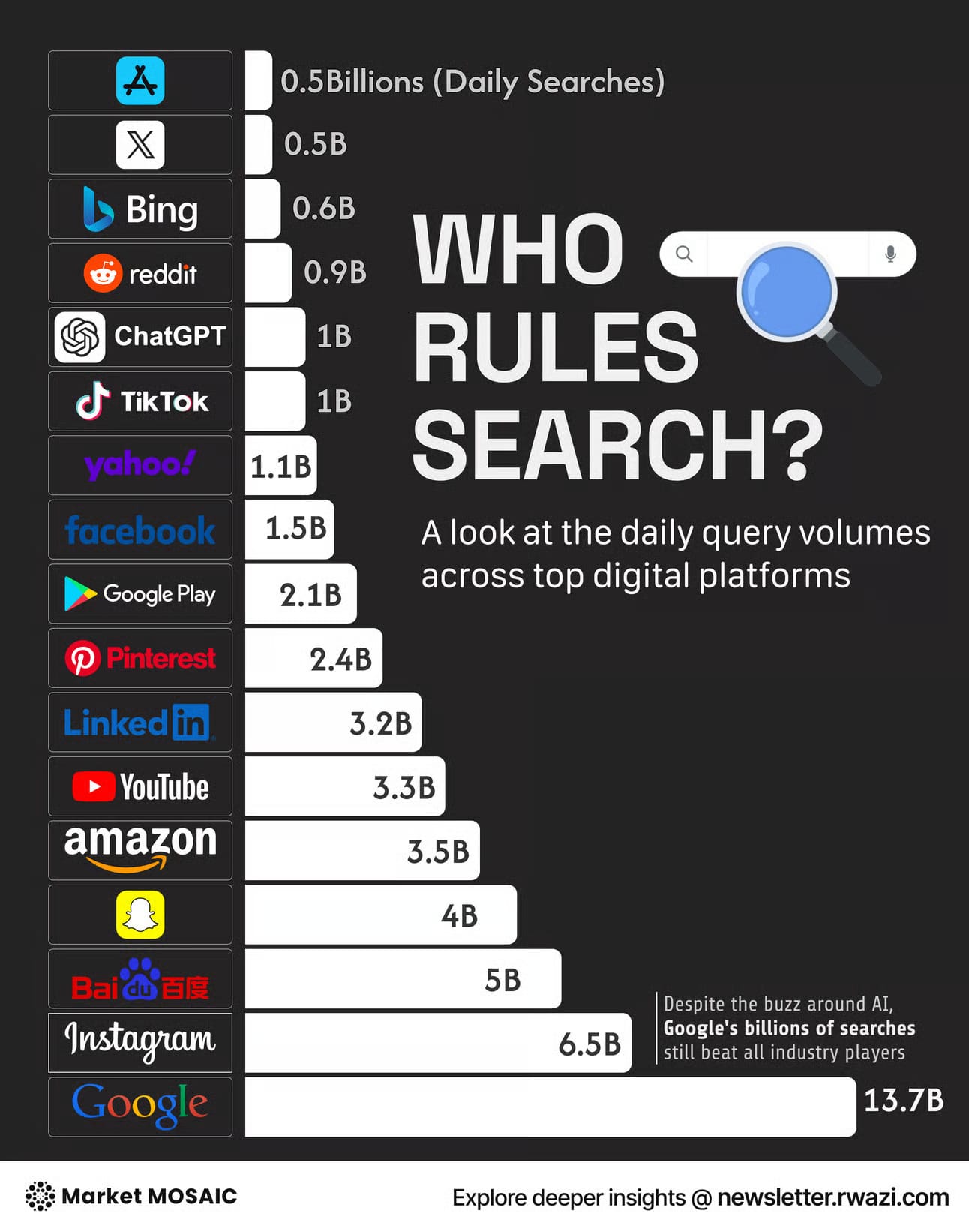The new rules of search: why AI Isn’t Replacing Google (Yet)
While ChatGPT now handles over 1 billion daily queries, Google still dominates discovery with 13.7 billion. Today’s consumers don’t stick to one search engine, they move fluidly across platforms like TikTok, Amazon, YouTube, and Instagram to discover, compare, and decide.

In 2009, Google crossed the milestone of 1 billion daily searches, a decade after launch. Today, that number has soared to 13.7 billion, making it the dominant search engine while still commanding consumer trust and default behavior. Fast forward to 2025, and ChatGPT has hit that same 1 billion daily search mark in just over two years. The growth is extraordinary, but the story isn’t just about scale. It’s about habit, and Google still owns it.
The rise of AI search
While ChatGPT’s rapid ascent reflects the appeal of AI-driven answers, it hasn’t yet displaced entrenched behaviors. Consumers continue to default to Google when solving problems, turn to Amazon when comparing prices, and scroll through TikTok or Instagram when looking for trends or recommendations. These behaviors aren’t platform-specific; they're habit-based.
The concept of “search” has quietly undergone a transformation. Consumers no longer view it as simply entering a query into a search engine and clicking a link. Instead, they explore, validate, and engage across multiple platforms each one serving a distinct role in the information-seeking process.
Instagram, which logs 6.5 billion daily searches, and Snapchat, with 4 billion, are no longer just entertainment apps, they're engines of product discovery and lifestyle research.
Amazon, clocking 3.5 billion daily searches, has become both a store and a search engine. It’s no longer just a place to buy, it’s where people research, compare, and judge credibility and YouTube, where users consume over 1 billion hours of video daily, is a trusted guide for tutorials, reviews, and consumer education. This evolution signals a key truth that people don’t search in one place, they search everywhere.

Why this matters for business leaders
This behavioral shift changes the rules for marketers, founders, and product strategists. Dominating discovery isn’t about building a better algorithm, it’s about showing up where your audience naturally goes. ChatGPT may be popular, but it hasn’t yet replaced default habits. Platforms like Instagram and Snapchat now play a central role in information gathering. Even YouTube, often overlooked in the AI vs. Google conversation, is a major force in how people research and decide.
The brands that win will be the ones who adapt to how people search. Today’s customer might start their journey on TikTok, validate opinions on Reddit, compare options on Amazon, then look for a how-to video on YouTube or a summary from ChatGPT. Generative AI search tools won’t replace this journey, they’ll enhance it. Google’s Search Generative Experience (SGE) and new platforms like Perplexity.ai are already embedding AI into familiar workflows. The platforms that align with existing behaviors, not challenge them, are the ones likely to succeed.
If you sell anything online, your platform is already a search engine. Every product page is an opportunity not just to convert but to educate, compare, and earn trust. Discovery and decision-making are now intertwined, and every click is a question your UX must be ready to answer.





